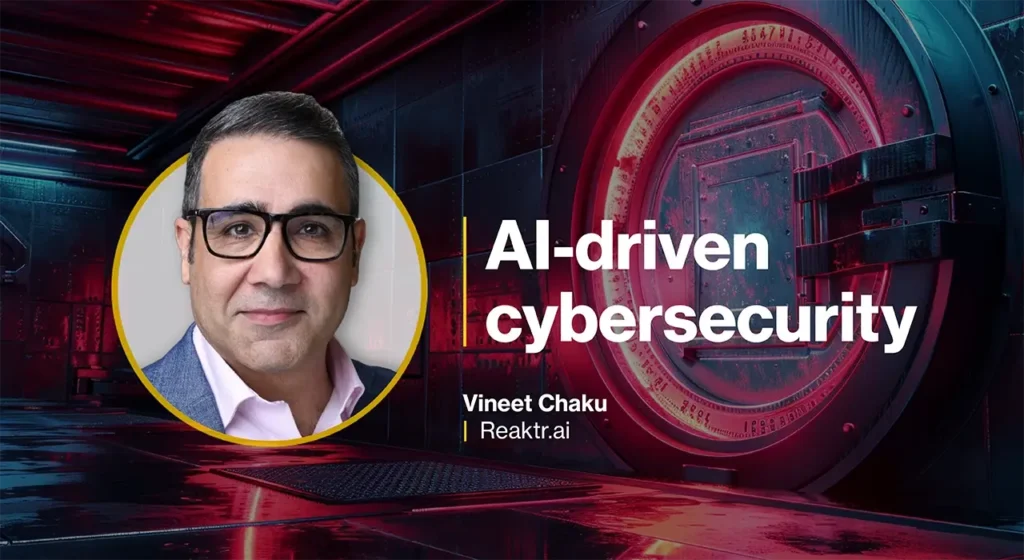How AI is Revolutionizing Cybersecurity: Insights from Vineet Chaku
In a recent interview with Help Net Security, Vineet Chaku, the President of Reaktr.ai, delves into the transformative impact of artificial intelligence on cybersecurity. This discussion reveals how AI is reshaping the landscape of anomaly detection and threat identification, as well as the critical role of human collaboration in harnessing its power.
The Shift from Reaction to Prevention in Cybersecurity
The traditional approach to cybersecurity has often felt like a game of catch-up—an endless cycle of reacting to threats after they occur. According to Chaku, “AI is changing that. It’s like we’ve finally found a way to stay a step ahead.” This radical shift allows organizations to spot potential issues before they escalate.
Imagine this: AI systems can quickly detect unusual activities, such as abnormal file access or unexpected surges in network traffic. It’s as if you had a digital watchdog constantly on the lookout for suspicious behavior. Moreover, AI can sift through vast amounts of data to identify hidden patterns, acting like a detective connecting unrelated dots to thwart potential threats.
This proactive ability is a game-changer, moving the cybersecurity focus from mere reaction to prevention.
Skills for a Synergistic Future with AI
While AI emerges as a powerful ally in cybersecurity, it is essential to recognize that it cannot replace human creativity and expertise. The key is collaboration. Chaku emphasizes that the best cybersecurity professionals will be those who can effectively leverage AI tools to enhance their own capabilities.
To thrive in this evolving landscape, cybersecurity experts should:
- Understand AI Mechanics: Familiarity with how AI learns and makes decisions is crucial. It allows professionals to interpret AI insights accurately and ensure responsible usage.
- Adapt to New Roles: As threats evolve, so too must the skill sets. Gaining knowledge in how threats can target AI systems and implementing defenses against such attacks is vital.
- Work with AI for Enhanced Strategies: Collaborating with AI will help in crafting robust security strategies that can adapt to new challenges.
The Dark Side: How Cybercriminals Exploit AI
As with any innovation, there’s a downside. Chaku notes that cybercriminals are also capitalizing on AI developments, creating increasingly sophisticated attacks. Picture an army of AI-driven bots probing for weaknesses in systems, crafting personalized phishing emails that are nearly indistinguishable from legitimate communications, and even manipulating AI against its operators.
Malware is evolving too; it can now change and adapt in real time, making detection with traditional tools nearly impossible. Cybercriminals are using AI to enhance password cracking and performing targeted attacks based on insights from social media.
Navigating Ethical Concerns in AI Deployment
The powerful capabilities of AI come with ethical responsibilities. Chaku points to several concerns that organizations must address as they deploy AI in cybersecurity:
- Bias: AI systems trained on biased data can perpetuate unfair outcomes, such as unjustly flagging individuals from specific demographics as suspicious.
- Transparency: The complexity of AI decision-making processes can obscure accountability, making it harder to identify mistakes.
- Data Privacy: While AI needs vast amounts of data, organizations must ensure that data collection and usage respect privacy rights.
Companies should prioritize ethical AI use, implementing guidelines that focus on fairness, transparency, and privacy to build trust with users.
Conclusion
The integration of AI in cybersecurity is not a mere trend; it’s a fundamental shift that empowers organizations to combat threats more effectively while encouraging a collaborative environment between humans and technology. As we adopt these innovations, staying aware of ethical practices and continually developing the necessary skills will be crucial.
The AI Buzz Hub team is excited to see where these breakthroughs take us. Want to stay in the loop on all things AI? Subscribe to our newsletter or share this article with your fellow enthusiasts.




